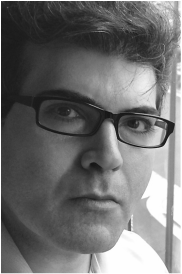If you are a music educator, then this part of the summer most likely has you researching programming options for your 2015-2016 ensemble(s). As someone who wears the educator, composer, and conductor hats, I implore you to please consider the following:
1. The music we program IS the music education our students receive. Hence, if we claim that our students learn about “life & music” in our classes, then our repertoire choices must back that up.
2. Be very selective. For Wind Band alone, there are 2,500 pieces published every year. 98.5% of those caused the needless death of a tree. Yes… that means approximately 37 (across all grade levels) actually deserve to be bought, taught and performed. We have all summer plus the use of Internet to find them. Find them!
3. Pursue compositions with both musical layers and symbolic layers. The pieces themselves should be doing as much teaching as we are.
4. “Technically Difficult & Brand New” does not equal “Worth.” No one is impressed or fooled by directors who consistently find the most wet-inked, arduous piece each year. These frauds' musical insecurities continue to waste everyone’s time, their own money, and teach their students a baseless lesson in taste. If this philosophy were credible, then all tongue-twisters would be poetry.
5. Every single time our rehearsals succumb to frustration, fatigue, burnout, staleness or distraction by the teacher or students, it can be attributed back to the moment of repertoire selection. Inspiring music eliminates ALL of those negative mental and physical states as it engages the conductor and ensemble. Ideally, student-musicians should mutter, “yes” following any title we call out to rehearse, not just some…. and not just one.
6. There is no composition of quality that is “too easy” for our groups. I know I write this all the time, but it cannot be emphasized enough... “The whole note is the first note we learn, the last we master.”
Friends, it’s very simple. Quality music may be hard to find, but it’s easy to identify. It stirs us. It immediately hits us deeper and initiates true contemplation. A great musical work presents itself as the precise answer to a question we didn't think to ask. Or, in the words of my own teenagers: It gives you "the feels."
Until next time… Have a safe and happy 4th of July to all of my American friends!
“Something’s at the edge of your mind, you don’t know what it is.
Something you were hoping to find, but you’re not sure what it is.
Then you hear the music and it all comes crystal clear.”
[Emmett, Moore, Levine]
1. The music we program IS the music education our students receive. Hence, if we claim that our students learn about “life & music” in our classes, then our repertoire choices must back that up.
2. Be very selective. For Wind Band alone, there are 2,500 pieces published every year. 98.5% of those caused the needless death of a tree. Yes… that means approximately 37 (across all grade levels) actually deserve to be bought, taught and performed. We have all summer plus the use of Internet to find them. Find them!
3. Pursue compositions with both musical layers and symbolic layers. The pieces themselves should be doing as much teaching as we are.
4. “Technically Difficult & Brand New” does not equal “Worth.” No one is impressed or fooled by directors who consistently find the most wet-inked, arduous piece each year. These frauds' musical insecurities continue to waste everyone’s time, their own money, and teach their students a baseless lesson in taste. If this philosophy were credible, then all tongue-twisters would be poetry.
5. Every single time our rehearsals succumb to frustration, fatigue, burnout, staleness or distraction by the teacher or students, it can be attributed back to the moment of repertoire selection. Inspiring music eliminates ALL of those negative mental and physical states as it engages the conductor and ensemble. Ideally, student-musicians should mutter, “yes” following any title we call out to rehearse, not just some…. and not just one.
6. There is no composition of quality that is “too easy” for our groups. I know I write this all the time, but it cannot be emphasized enough... “The whole note is the first note we learn, the last we master.”
Friends, it’s very simple. Quality music may be hard to find, but it’s easy to identify. It stirs us. It immediately hits us deeper and initiates true contemplation. A great musical work presents itself as the precise answer to a question we didn't think to ask. Or, in the words of my own teenagers: It gives you "the feels."
Until next time… Have a safe and happy 4th of July to all of my American friends!
“Something’s at the edge of your mind, you don’t know what it is.
Something you were hoping to find, but you’re not sure what it is.
Then you hear the music and it all comes crystal clear.”
[Emmett, Moore, Levine]

 RSS Feed
RSS Feed